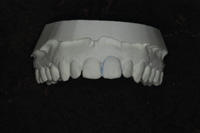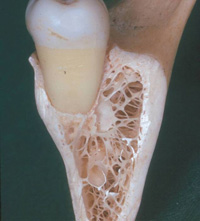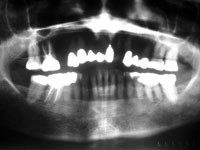Much has been written, discussed, and postulated about staff bonus systems and how they benefit—or are a detriment to—the dental practice. If you want to precipitate an argument, or in some cases stir up a “hornet’s nest,” broach the topic of staff bonuses. When it comes to bonuses, there seems to be no middle of the road; people either love them or hate them.
Why bonuses at all? Do they really make a difference? Can’t you just have a staff member stand up at a staff meeting and be praised for a great job? How about flowers or dinner for two? While these are good ways to recognize individual efforts, they really do very little to advance the practice and the team concept. Do large businesses use employee bonuses? No, not all. Just the most successful ones!
The Wall Street Journal conducted a study of Fortune 500 companies to determine what separated the most profitable from the least profitable and marginal companies. Were there any unique characteristics? The answer was a resounding yes! Those companies with the most lucrative incentive systems (cash, stock options, etc) for their employees were 50% more profitable than those that did not have any or marginal incentives.
There are literally thousands of instances where corporations have grown exponentially into giants, not because of unions, but because of lucrative incentives and bonuses for their employees! A great example of this type of success is Wal-Mart, which has grown from a single “dime store” to the world’s largest retailer. How did it do this? According to Sam Walton, founder and CEO of Wal-Mart, bonuses and employee incentives were “the single most important ingredient in Wal-Mart’s success.” One of Mr. Walton’s most famous comments from his book, Made in America, was, “If you want the people in the stores to take care of the customers, you have to make sure you’re taking care of the people in the stores.”
We may not think staff bonuses and incentives are important, but there are certainly a lot of billionaires who would disagree!
Staff members must have direction (goals). They must have the required knowledge and training. They must have an adequate facility and the proper equipment. They must have support, encouragement, and recognition. They must be motivated—the more motivated the better—and motivation is the primary reason for a sound bonus system.
Further, one of the most disrupting events in a practice is a key employee quitting. Unless the doctor is Ghengis Kahn, most employees quit to take a better paying position. To replace lost employees can be very expensive in terms of the costs of finding someone to replace them, lost revenues due to disruption in the practice, and the cost of training someone to replace them. The ADA has estimated replacement costs to be $25,000 to $30,000, including actual costs to replace, training, and lost production. Obviously, once you have retained good employees, it is imperative that you keep them. You can pay a lot of bonuses with $25,000!
A solid bonus system can be the driving force behind a super successful practice. Nothing will fire up your staff faster than the chance to make more money. Staff members have family budgets, clothes to buy, children to educate, and car payments to make (the same as the doctor). When you introduce new methods that will produce more income and make the practice more profitable only for you, that is not a great inducement for your staff members to go the extra mile. You are only making their job more difficult, in their eyes. A bonus is the great equalizer.
Great new ideas by themselves usually mean more work for your staff and are not particularly great motivators. Making more money does motivate, however, just like it motivates the doctor or anyone else.
At DentalSolutionsNow, it has been our experience over the last 20 or more years that a sound bonus system is a boon to most practices. It can be the difference between a mediocre practice and a great practice. Obviously, we favor bonuses, but they have to be correctly structured and be the right type of bonus or they can be counterproductive. What we have discovered is that bonuses that reward staff for functioning as a team are dramatically better than those that reward individual performances. Remember, the key to the successful million-dollar practice is a dedicated staff that works as a team! If the team wins, then all are rewarded; if the team loses, everyone loses—no one is rewarded. Isn’t that pretty much a “slice of life?” Further, the bonus has to be structured in such a way that the staff has to reach to attain it; ie, it requires an outstanding effort by everyone.
Why not bonuses, then, that reward staff members for individual excellence in performance of their jobs? Why should they be “punished” for doing a good job when others are not up to par? The fact that certain staff members are not “doing their job” is in reality a fundamental hiring and training issue and should be addressed before a team bonus is contemplated. With individual staff bonuses, the staff does not function as a team because staff members are competing with each other. The reason? They have individual goals instead of practice goals. This results in squabbling and infighting because one person ostensibly achieves his/her goals at the expense of someone else, or dispirited staff members start blaming each other for keeping themselves from achieving individual goals. There can be no teamwork under such a scenario. People must have individual responsibilities and be held accountable for them, but the staff as a whole (team) must have common goals! If an individual continually does an outstanding job, the reward/recognition should be a raise in her/his base pay.
When you have a system that promotes competition among staff members, they soon stop functioning as a team and revert to individual “I’m for me first” self-interest attitudes. This approach simply destroys the team concept. As in football or any other team sport or business, the competitive aspects among individual team members is a result of vying for position; ie, the “first team.” Once the first team is selected, the competition between team members must cease. The new paradigm is now the 11-person team (football analogy) whose duties and responsibilities—and their successful implementation—allow the team to succeed, not the individual! Under a scenario of individual goals, the least surprising development should be that the staff does not function as a team. The individual’s mission is to accomplish his/her individual goal because that is how he/she is evaluated and rewarded; who cares if anyone else reaches his or hers? We have found that this is a behaviorally unsound approach to team building.
Successful incentive or bonus programs work because they take the I out of the equation and put the we into it. If we work together as a team, we attain our goals, and we all get a bonus. If we don’t achieve our goals as a team, no one gets a bonus. That’s called losing in sports, the corporate world, the dental practice, or any other team endeavor.
Dr. Havill is owner and president of Dental SolutionsNOW (DSN), a company dedicated to providing dentists with timely information to increase practice growth, organization, and income through its widely acclaimed Complete Practice Operating System. Dr. Havill is a dental practice management consultant in Louisville, Ky, and has been involved in all areas of dentistry, including general practice, consulting, and practice systems development for over 35 years. Dr. Havill wrote the Complete Practice Operating System in-office practice management system (formerly Dentistry 2000) that—together with the DSN manuals and office forms—has been successfully implemented in dental practices for over 15 years in 48 states, the District of Columbia, Puerto Rico, Canada, and Australia. Dr, Havill can be contacted at (502) 394-0150 or (888) 809-2138. For additional information about Dental SolutionsNOW, visit dentalsolutionsnow.com.











